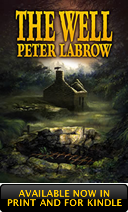I’m currently working my way through several books which are recognised classics in their genre, yet which I’ve somehow managed to overlook.
Make Room! Make Room! was the inspiration for the film Soylent Green – and, as is so often the case, a chasm exists between the book and the film. Not that I’d knock the film; it’s a good enough piece of cinema – and a classic in its own right. But in the same way that Do Androids Dream of Electric Sheep? forms only the basic foundation for the film Blade Runner, so it is with Harry Harrison’s novel.
Set in New York, Make Room! Make Room! imagines a world where all natural resources are all but gone. The world is overcrowded. Water is rationed. Work is scarce. Those who can work are still incredibly poor, forced to share tiny rooms. Those who can’t work survive – just about – on benefits, often supplemented by crime. Food is almost always synthetic or manufactured from everything from seaweed to soya and lentils – which is where the name Soylent comes from.
Written in the 1960s and set in 1999, the story follows detective Andy Rusch as he struggles to both survive in a world of increasing violence and decreasing resources – pressured from above to find the killer to a well-connected but dubious businessman. We also follow the killer – an unfortunate, poverty-stricken young man – as he evades the law.
New York, in the middle of a heatwave, is a desperately crowded, dirty and mistrusting place. The heat, hunger, thirst and deprivation keep the population malcontented but too exhausted to even imagine change let alone create a better future.
Harrison breathes incredible life into what could have been a tired story and into what is a well-realised and exhausted world, gasping its last breath like a desperate old man clinging onto a pointless life.
Pointlessness and futility pervade this tale. There’s nothing in life to strive for, other than survival. Only a wealthy few enjoy comparative luxuries (such as real meat and air conditioning) and they live on the same knife edge as anyone else – what they have could be lost at any time, dragging back into poverty all of their dependants. The crime itself is pointless, the search itself little better.
In many ways, I was reminded of The Grapes of Wrath, where the Joad family can aspire only to survival and little else. The world Harrison paints is a complete one; it wraps itself around the reader like a coat of utter believability. Sure, written when it was, some of the future is wrongly predicted – telegrams still exist and computers are evident only by their absence. Yet, this too remains credible – without power, what good are computers? The police would have to go back to manually matching fingerprints, for instance. It would be that, or wait for the few hours a week when the power might, if they were lucky, come back on.
Unlike the film, which builds towards an epic denouement, the book steadily grinds down its characters as their options – along with their resources – become ever more limited.
Just as I feel that Frankenstein has never been filmed in a way that does justice to the source material, so I’d love to see a film made which tells the story in a more faithful way than does Soylent Green.
As with the discovery of any wonderful book, I revelled in reading this for the first time – something one can only do once. But I’m also more than a little sad that I didn’t discover this in my youth as I’m certain that this is a book one reads again and again.
Highly recommended, this book’s classic status is well-earned.


Leave a comment